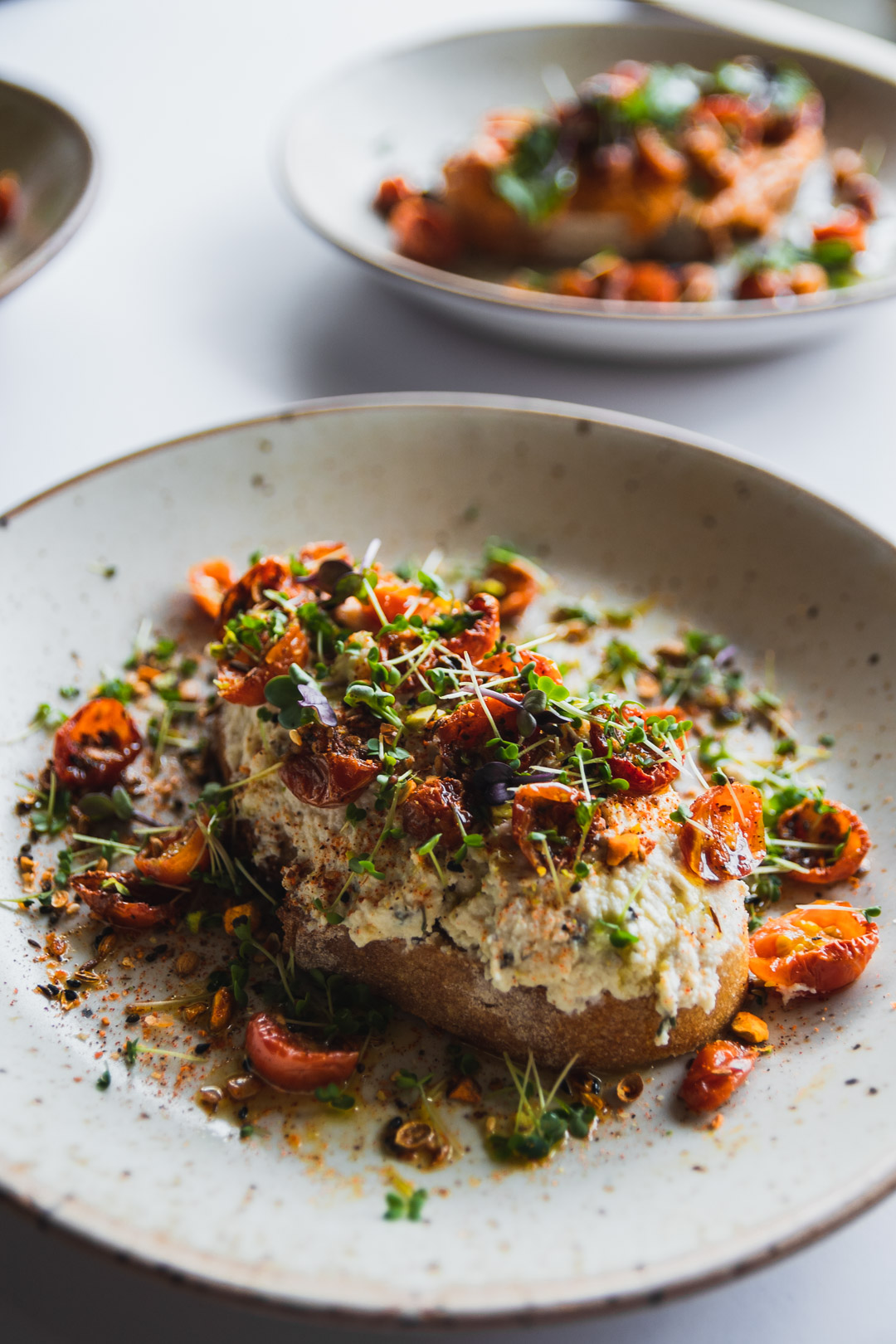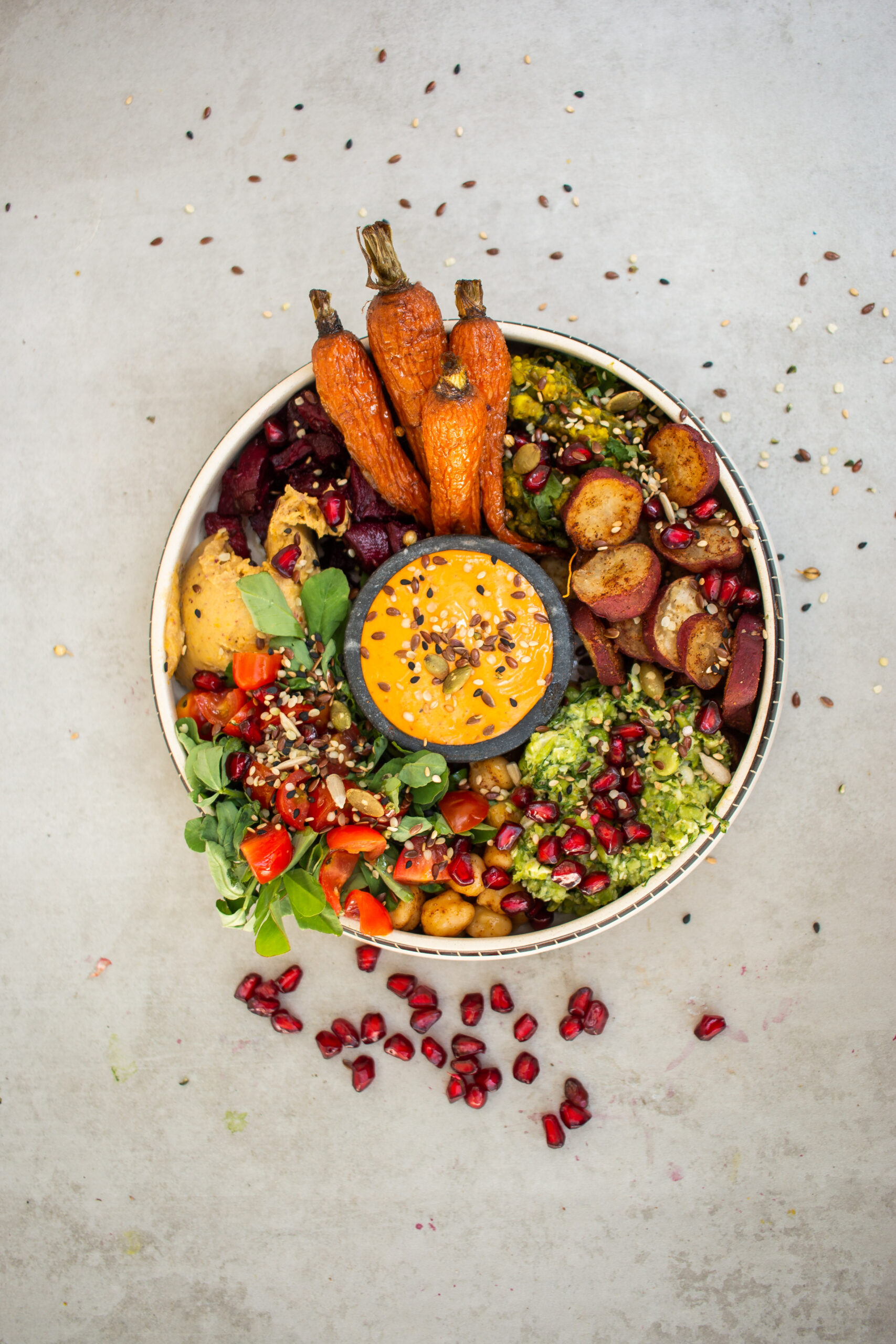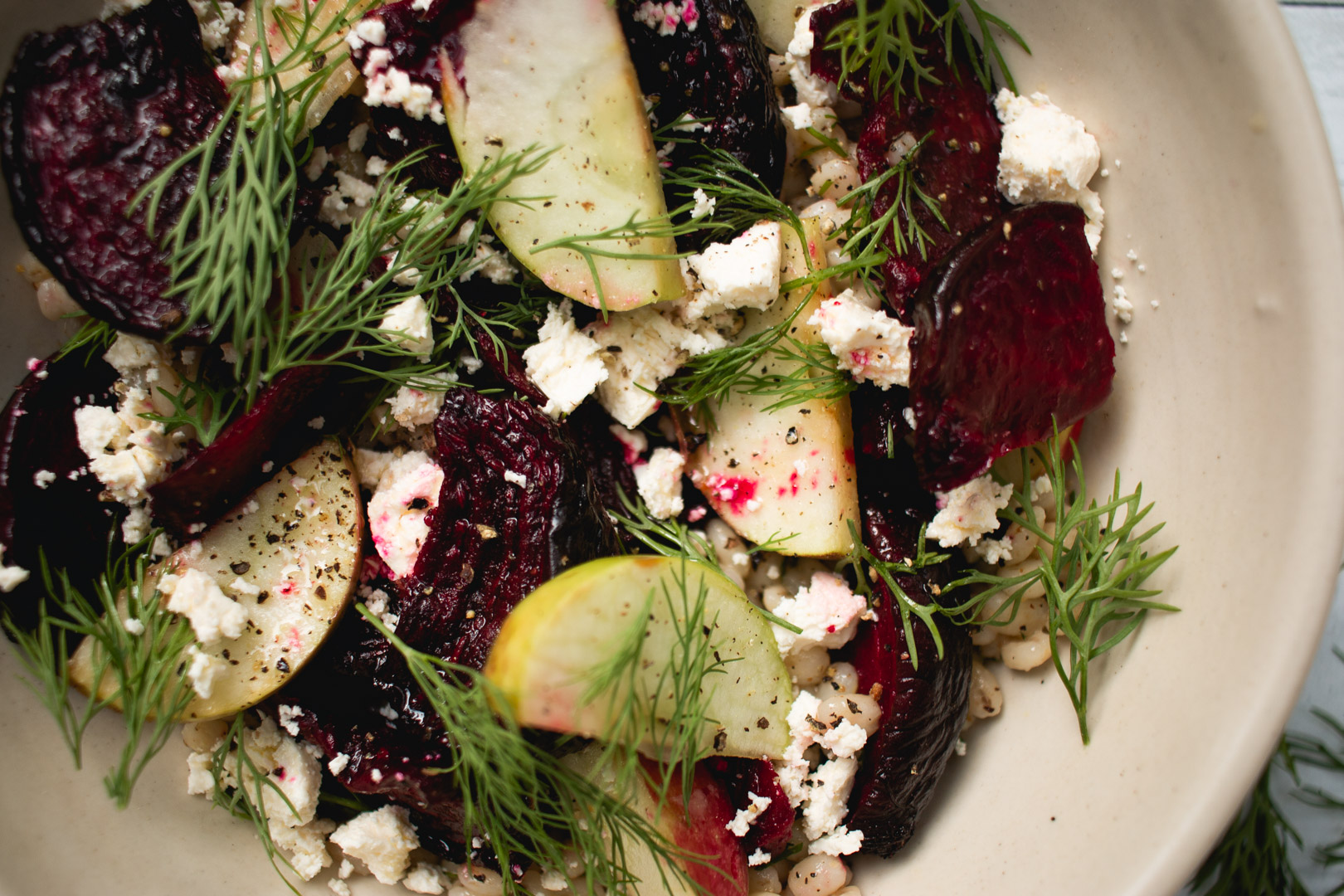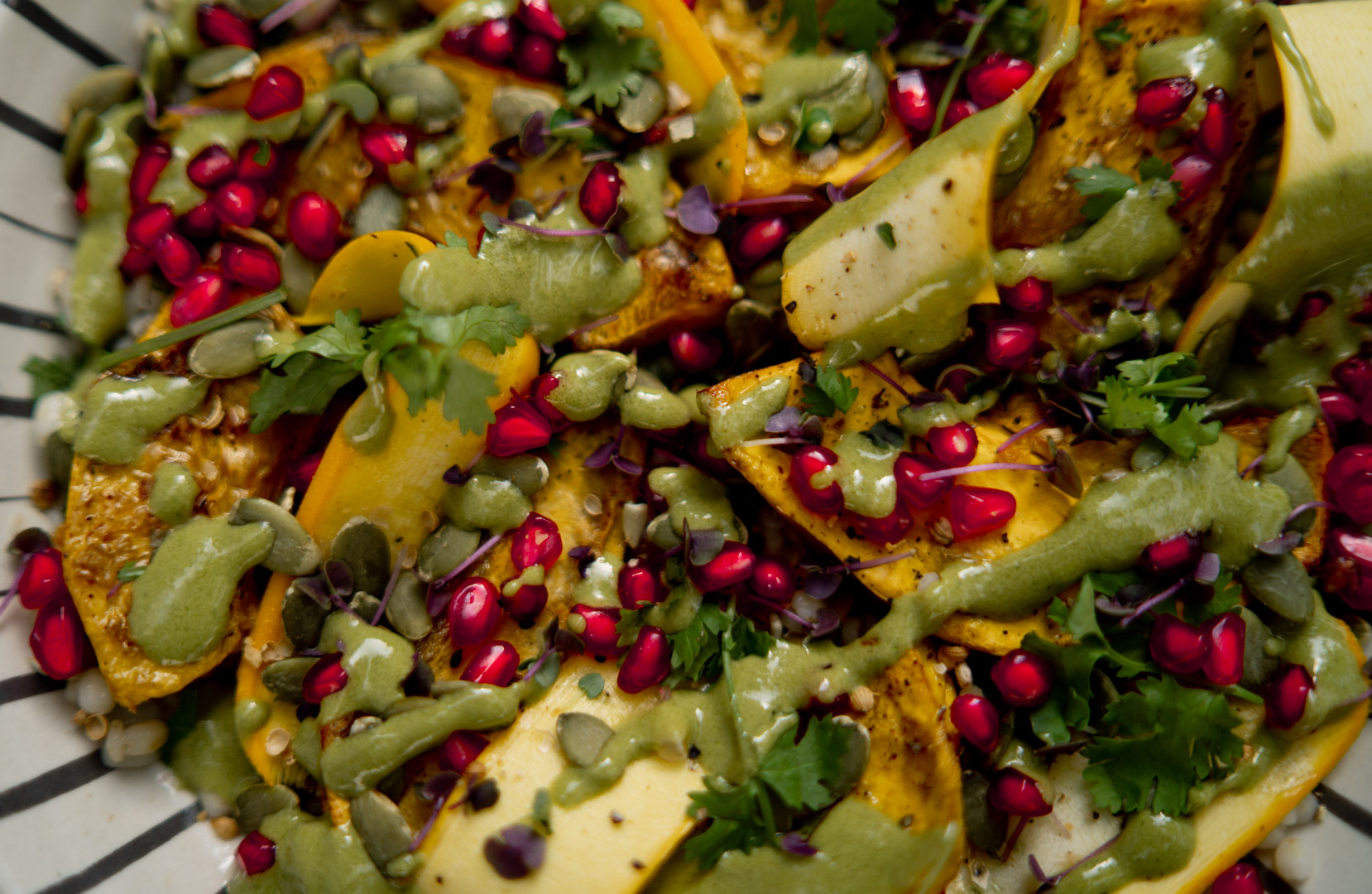Predominantly plant-based
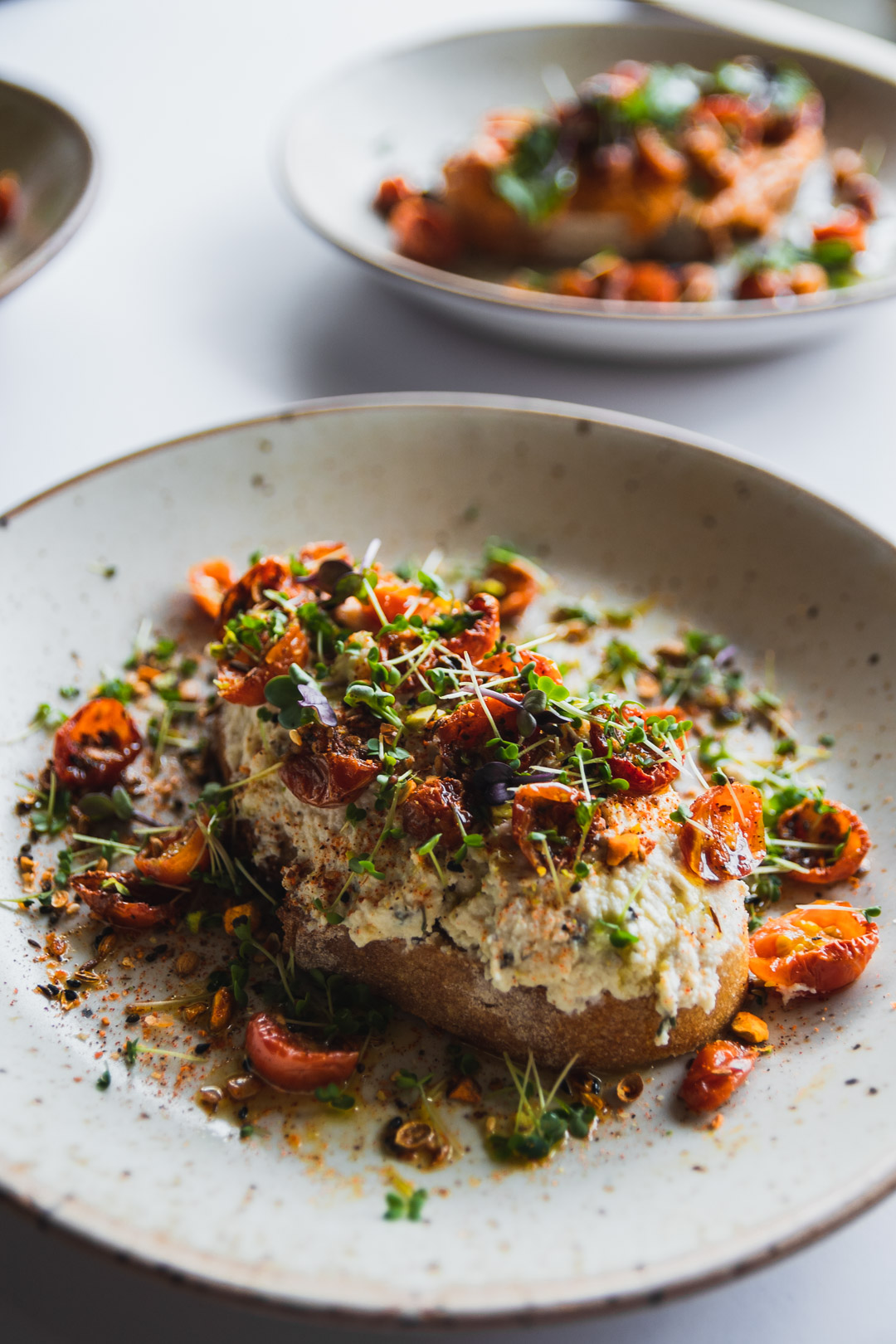
We do advocate, based on much research, that eating a mostly plant-based diet has numerous health benefits and benefits for our environment. We like the term plant-based because it is not a narrow label- it simply means eating a diet that is predominantly made up of whole foods from plants (see below)
We are not trying to persuade anyone to become vegetarian or vegan per se- but rather to encourage everyone- no matter how they would label their eating style- to introduce a wider variety of plant-based foods into their diet and to try new dishes and combinations.
We believe plant-based eating can be exciting and fun and want to introduce beautiful, nourishing and delicious . If you love to eat meat and feel vegetarian food tends to be boring, Copper + Cloves is still for you!
Eat whole foods
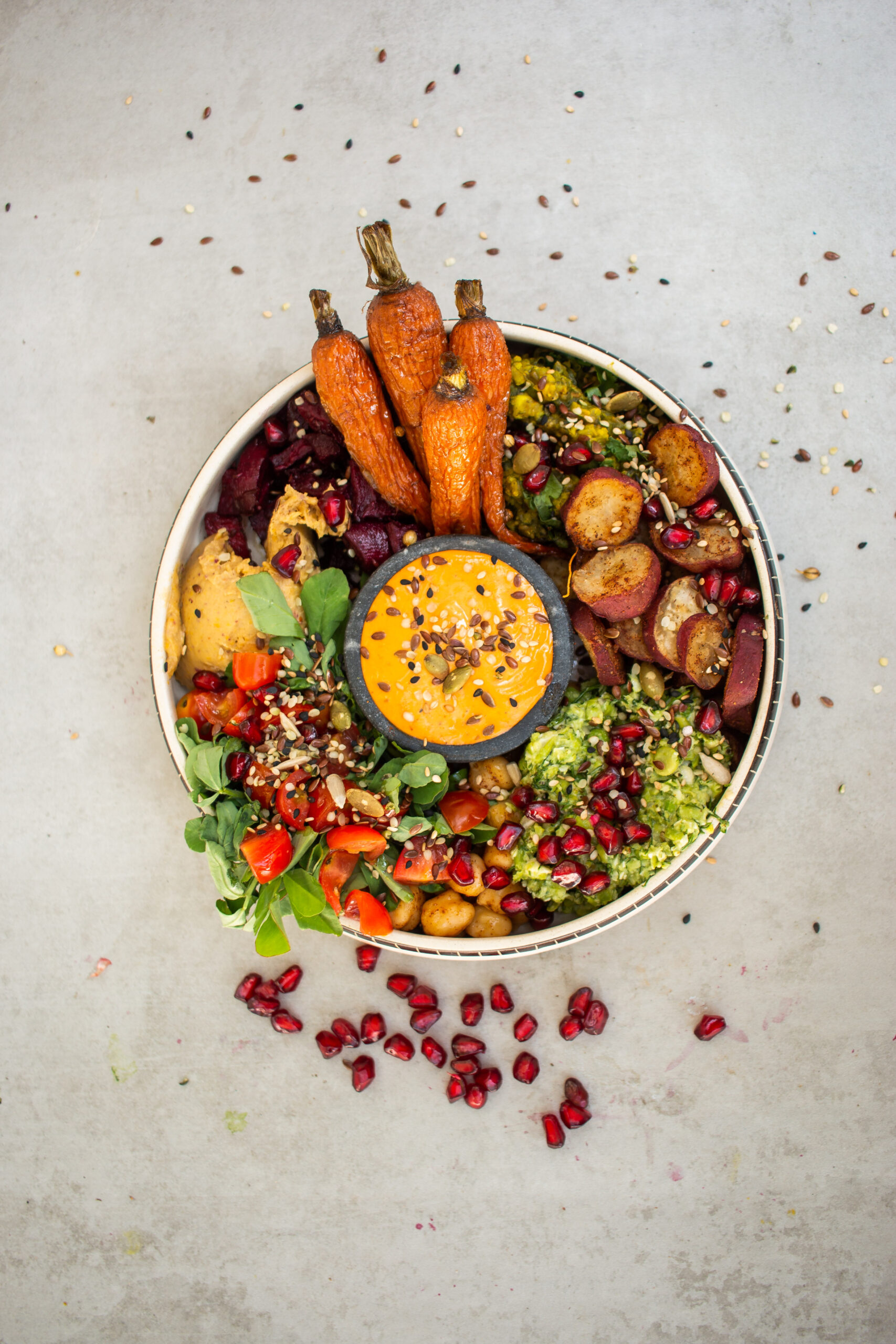
Copper + Cloves is all about celebrating whole foods and creating recipes that use whole foods in innovative ways. Whole food means food that is minimally processed at the point of purchase- all different types of colourful and leafy vegetables, fruits, pulses, dals, whole grains (like brown rice, red rice, wholewheat and millets), nuts and seeds, and herbs and spices.
When possible, we avoid eating packaged, processed foods that come wrapped in plastic and contain long lists of ingredients including additives and preservatives.
Variety
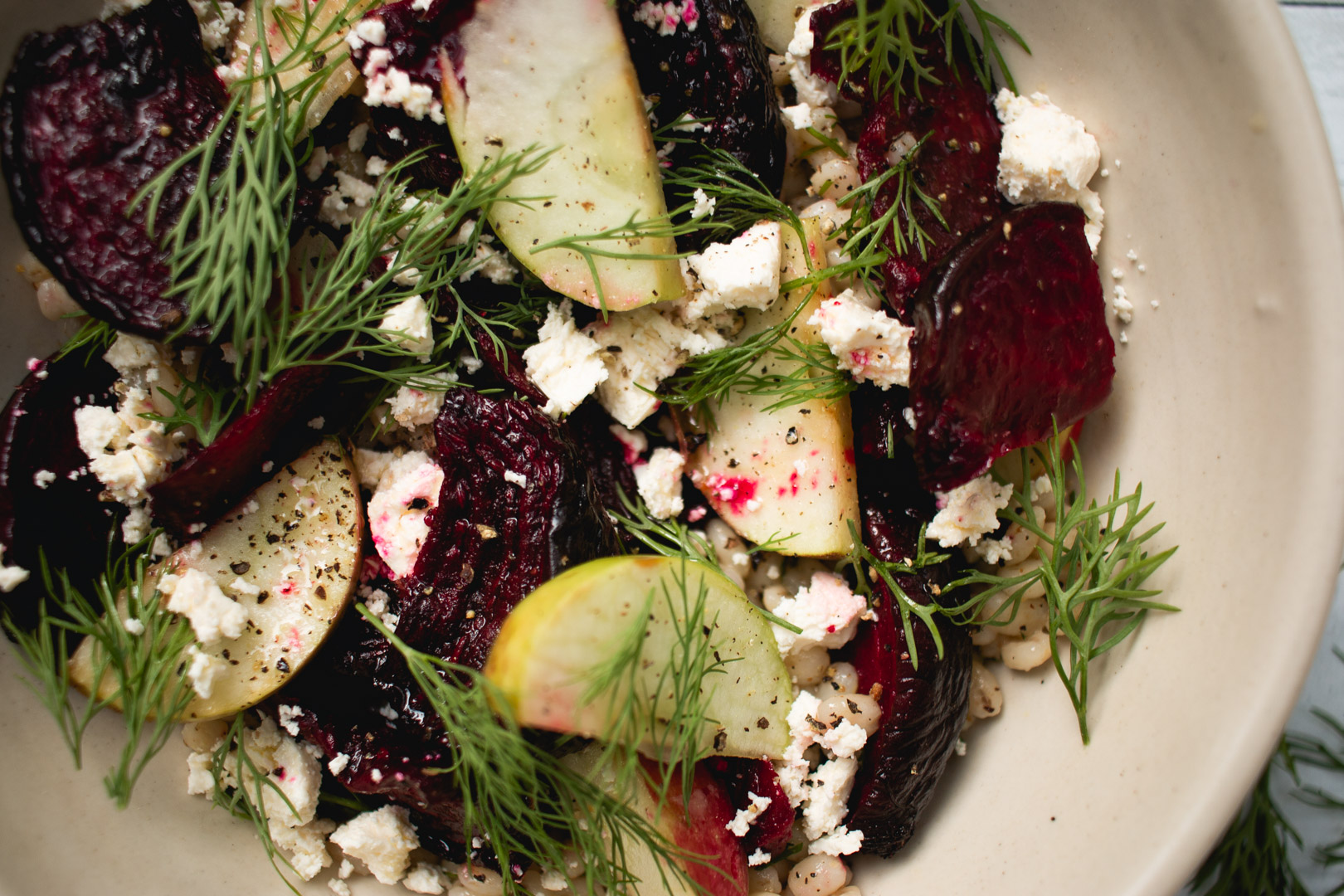
Variety is central to our food philosophy. One type of natural ingredient isn’t better than the other and eating the exact same things every day, no matter how healthy those meals may be, is not the way forward. There is an amazing spectrum of colourful fruits and vegetables, whole grains, beans and pulses, nuts and seeds and herbs and spices that are grown in this country. It is our job to celebrate them by being open and curious and trying new things and recipes. ‘Eating the rainbow’ is not just advice for children- it’s good for adults also! With our recipes, our aim is to keep you trying new ingredients and to get as many different colours and varieties of plants onto your plate!
Choose local produce
We have amazing produce here in India and there is no need to import fresh produce from abroad to get any supposed health benefits or flavours. Central to Copper + Cloves is the farm-to-table philosophy. We aim to work with local, organic producers and suppliers as much as possible. Our food reflects cooking styles from communities around the world- home cooking from the Middle East, East Asia and the Mediterranean- as well as Sarah’s own Sri Lankan heritage and her time living in South India. We shouldn’t restrict ourselves to one cuisine or style of eating- it can be such a fun experience to eat healthy food from around the world! But we do believe we should adapt cuisines and dishes to ensure we are eating seasonal and locally grown produce rather than buying expensive imported ingredients.
Mindful eating
Mindful eating principles are counter to dieting, bingeing and grazing- forms of mindless eating that lead us feeling lousy. You can read more about mindful eating here.
There is not one perfect way to eat
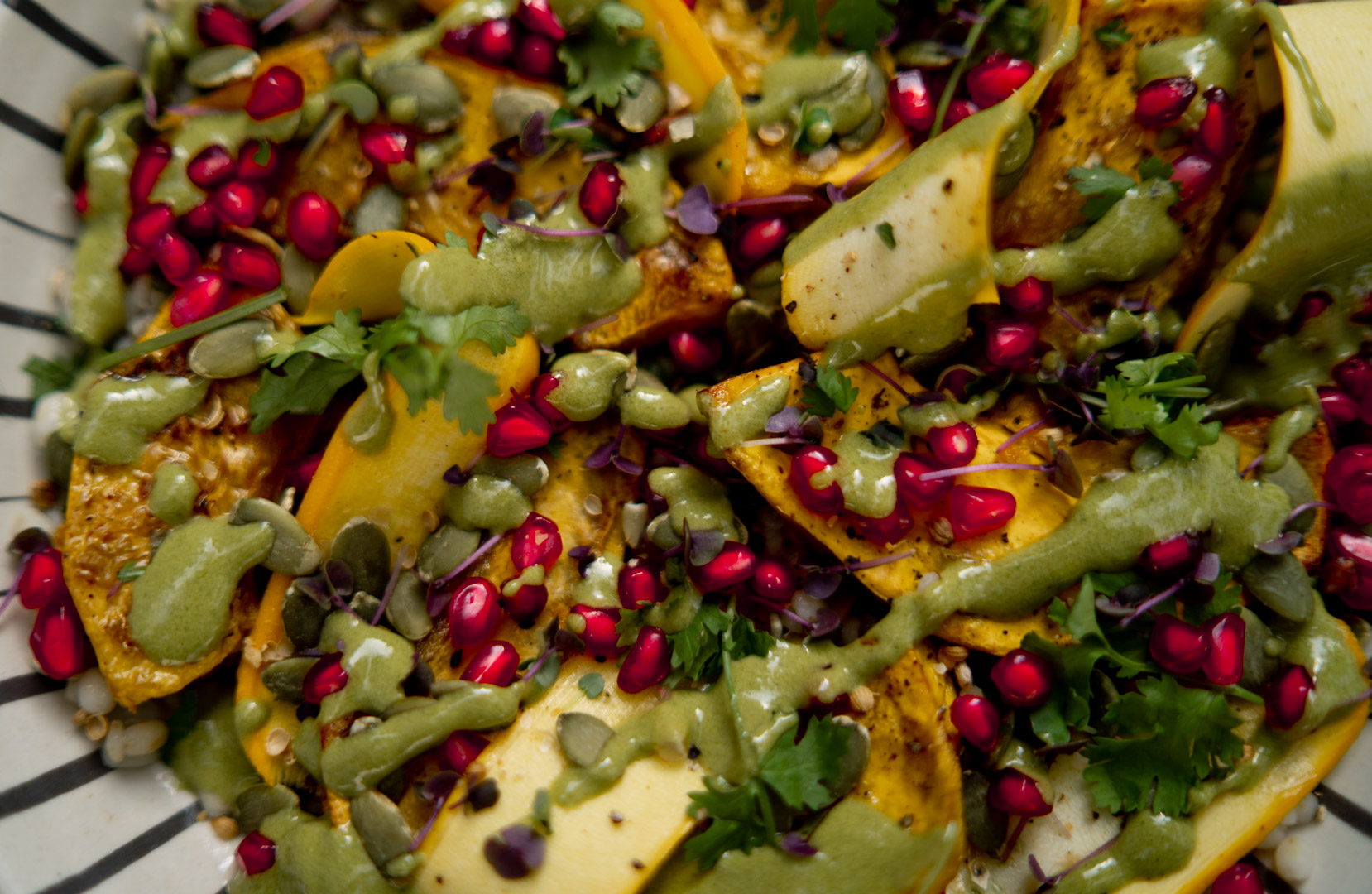
Our mission is to show you that healthy meals made of whole, plant-based ingredients can be delicious, exciting and fun to prepare. You get to choose which ones are your favourites and which ones make you feel great in your body, are convenient and easy for you to cook at home and which you and your family enjoy eating. The best way to eat is the one that you enjoy, can sustain and makes you feel amazing.
Everyone is different, we have different genetics, environments and different energy requirements. Our lives change over the course of time, and even from day to day, and this means what we eat and how much we need to eat can change day to day. The idea that there is ‘one way to eat’ for everyone, when you think about it, is a crazy untruth. When we learn to eat mindfully and respond to our body’s needs, we have a lot of room to enjoy different things.
Diets don’t work

We often hear the story ‘I lost a lot of weight on X or Y diet, and it was great for a few months, but then I couldn’t stick to it and I gained the weight and now my eating is all over the place’. To have a healthy, positive relationship with food and tune into what our body needs, we need to dissolve all the ‘diet thoughts’ we have around foods. We cannot really be present when eating food if we have strict rules that tell us what we should be eating at what times and what is ‘good’ or what is ‘bad’ for us.
Listening to a diet book or an Instagram personality telling you exactly what or when to eat interferes with your innate cues. It is important to ditch those rules that we may have internalised over time- some of which may even be subconscious like ‘I should not eat carbs after 6pm’.
This can be a little scary at first, because after years of following diets and having categories of what we ‘should’ eat and what is a ‘guilty treat’, we may experience cravings, feelings of shame and anxiety, possibly feelings of being ‘out of control’ around certain foods because we can’t ‘trust yourself’ around it.
By giving ourselves permission to eat whatever we want, we can begin to pay attention to the experience of eating, without interference from this internal, unhelpful chatter. Once you accept that you can eat what makes you feel good when it feels right, you can relax. That food which you might have restricted for a long time is available to eat whenever you want. As a result, there is no need to overeat it when you feel like eating it. You can eat just the right amount for you in that moment. What we find, contrary to our expectations, is that when we really listen to our body and its signals, it actually wants to be fed mostly healthy, whole ingredients and there is plenty of room for all types of food.
Eating for a healthy gut is at the heart of true health
The field of research into the importance of gut health (meaning a thriving, diverse community of microbes living inside us) on our overall health and wellbeing is growing all the time. It’s a new and active area of scientific enquiry- even since I trained as a Health Coach in 2017 we understand the role of a healthy gut microbiome so much more- and how it can impact everything from the obvious signs like poor digestion and bloating, but also our mood, auto-immune conditions, diabetes and obesity. But rather than following a ‘gut-health diet’, we can simply focus on the basic principles.
Firstly, eating lots of prebiotic food (that is food which feeds our gut microbes- whole, plant based ingredients like the beans, dals, veggies and fruits, nuts and seeds I keep going on about). Secondly, supplementing this with lots of probiotic foods- foods which actually contain the good microbes which can go and thrive in our gut. By this I mean fermented foods and drinks- you will most likely have heard of the most common traditional ones like our home pickles, homemade curd and some of the trendy ones like kombucha and kimchi. There are lots of recipes on here for different types of fermented foods and drinks that are easy to make at home without special equipment or ‘starters’ that you have to obtain.

